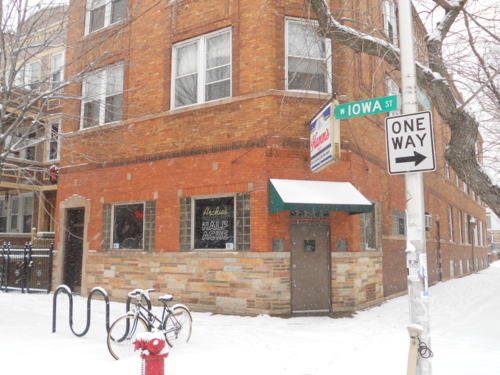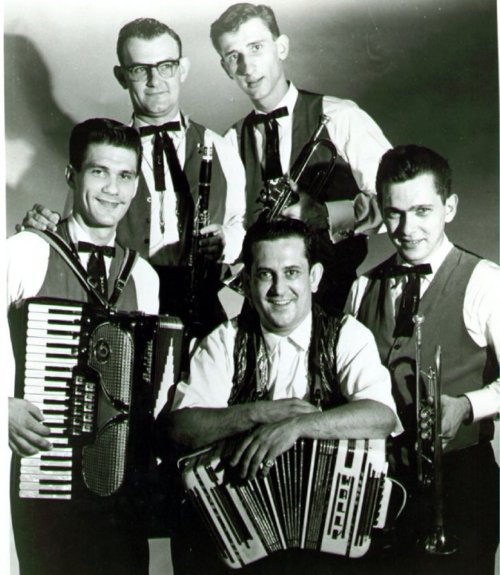Our corner bar

Jan. 11, 2011—
There is a corner bar at the end of the block on the street where I live.
The classic Chicago workingman’s tavern has been there since 1943. Polka legend Lil’ Wally played “I Like Her Golabka” and “Polish Polka Twist” at this bar during the late 50s and early ’60s.
I have been there twice in recent weeks. The bar is on a one-way street and I walk the other way. During the summer I hear Mexican rancheros spilling out from the windows of brick three-flats. The bar has a good CD jukebox with Merle Haggard, the Ramones and a fuzzy sound system. I like the songs although I don’t need to hear “(I Can’t Get No) Satisfaction” for the rest of my life.

On the night we kissed goodbye there wasn’t much else going on besides cheap tequila. Maybe it was a few days before New Year’s Eve. I had never seen the one-eyed dog with big black and white spots that belonged on a Holstein cow. The dog ran up to everyone and underneath the pool table. A woman in crutches had her right foot wrapped in a plastic bag.
And there was Elvis, the neighborhood guy who mops up the place and picks up empty Hamm’s beer cans. He is deaf and he is mute. Elvis is his real name. Sometimes he is dirty with grit on his face. But he grins.
He’s always at the bar on the one-way street.
The next visit I was alone on the night of the Tucson, Az. shootings. The bar was packed. Maybe 75 people. A woman was having her 30th birthday party.
About half the people in the bar were texting or checking messages on cell phones. I still don’t get this. I go to a bar to get away from things.
I considered the old men who once frequented this place. They talked to shadows. Their hearts were like quarters tumbling into broken parking meters. After a few shots of Polish vodka with bison grass perhaps they talked to each other or the bartender who is everyone’s friend.
We don’t talk as much as we used to—at least face to face.
Elvis came in late that night with a soggy hoodie over his jet black hair. He seemed happy. I’ve never seen Elvis with a cell phone. I’ve seen him applaud at a good play in a football game on the bar’s big screen television. On that night of cheap tequila he attempted to tell us about the one-eyed dog in fast sign language.
I’ve felt his pat on the back when I’m sitting at the bar, across from the tavern’s 1922 button cash register. I feel I know him better than some of the people I work with.
We’re distracted. Like the Tube in London, the growing social network is a linear tunnel with sparks of words, ideas, love and hate being spewed out with little regard for reflection. Catch what you can. Discourse doesn’t stop here.
We don’t have time to understand the music from a neighbor’s weatherbeaten windowsill, send a picture postcard on a whim or absorb the oral histories of a bar that has Chicago liquor license No. 177. I’ve been guilty as charged.

The railroad workers and mechanics who listened to polka music at the corner bar knew how to offer a hand to people that have slipped between life’s cracks. They were more aware of what went on around them. They were good listeners. Some hitchiking souls were long time neighbors.
A bright smile can emerge from a soot-stained face. Can we make the effort to return the gesture with a thoughtful nod? I’m trying.
Maybe its the first step on a one-way street in making this world a better place.


Leave a Response